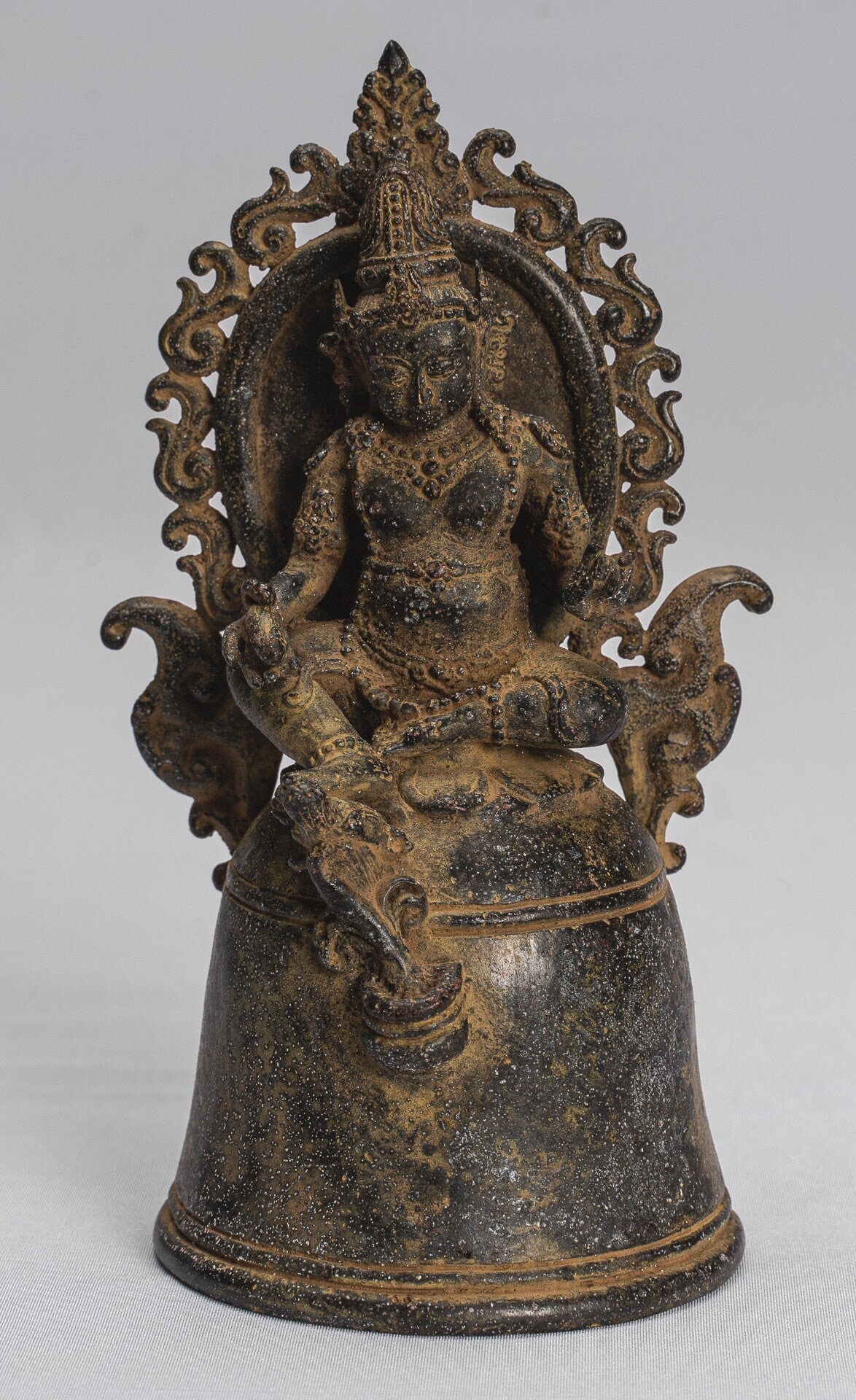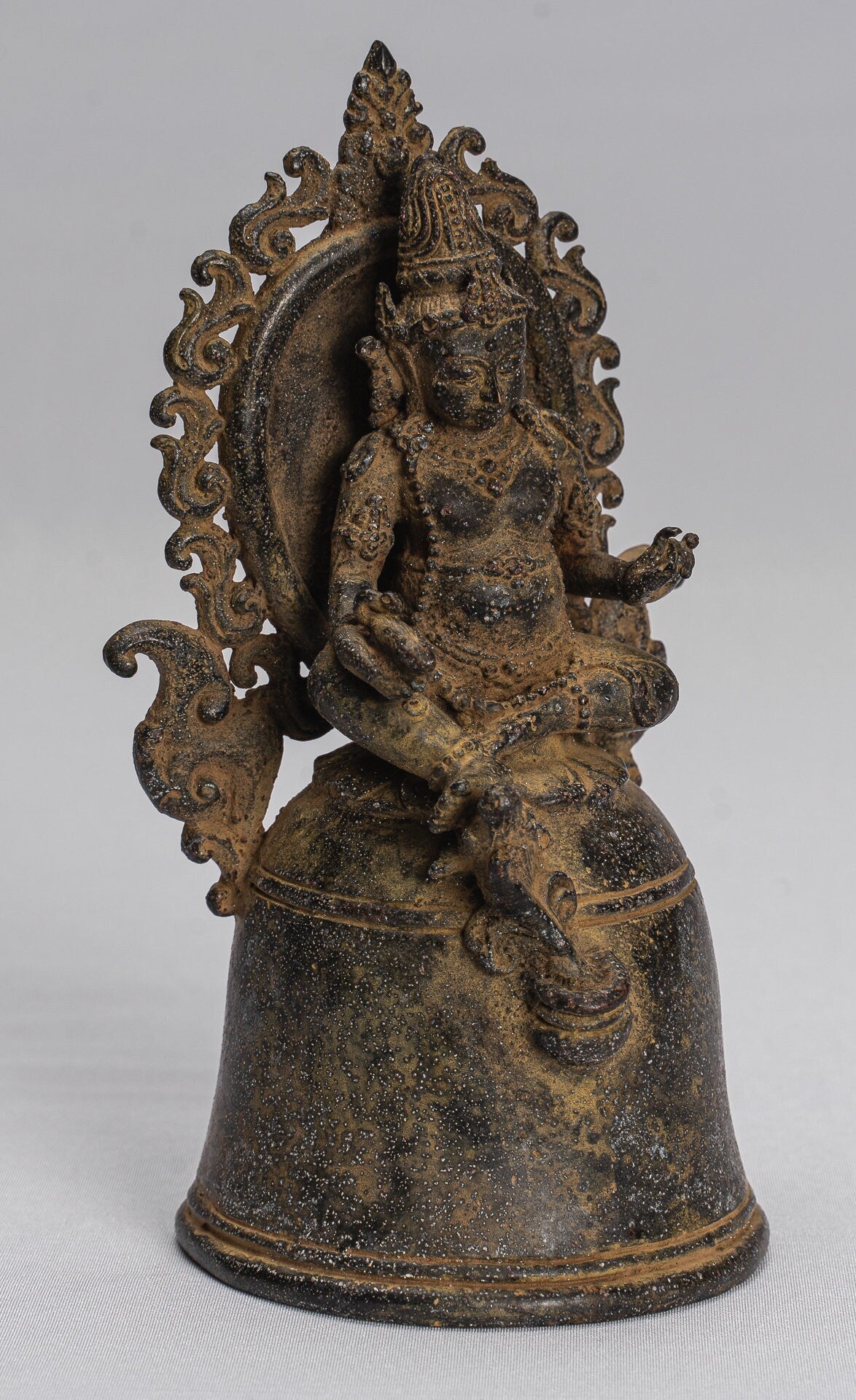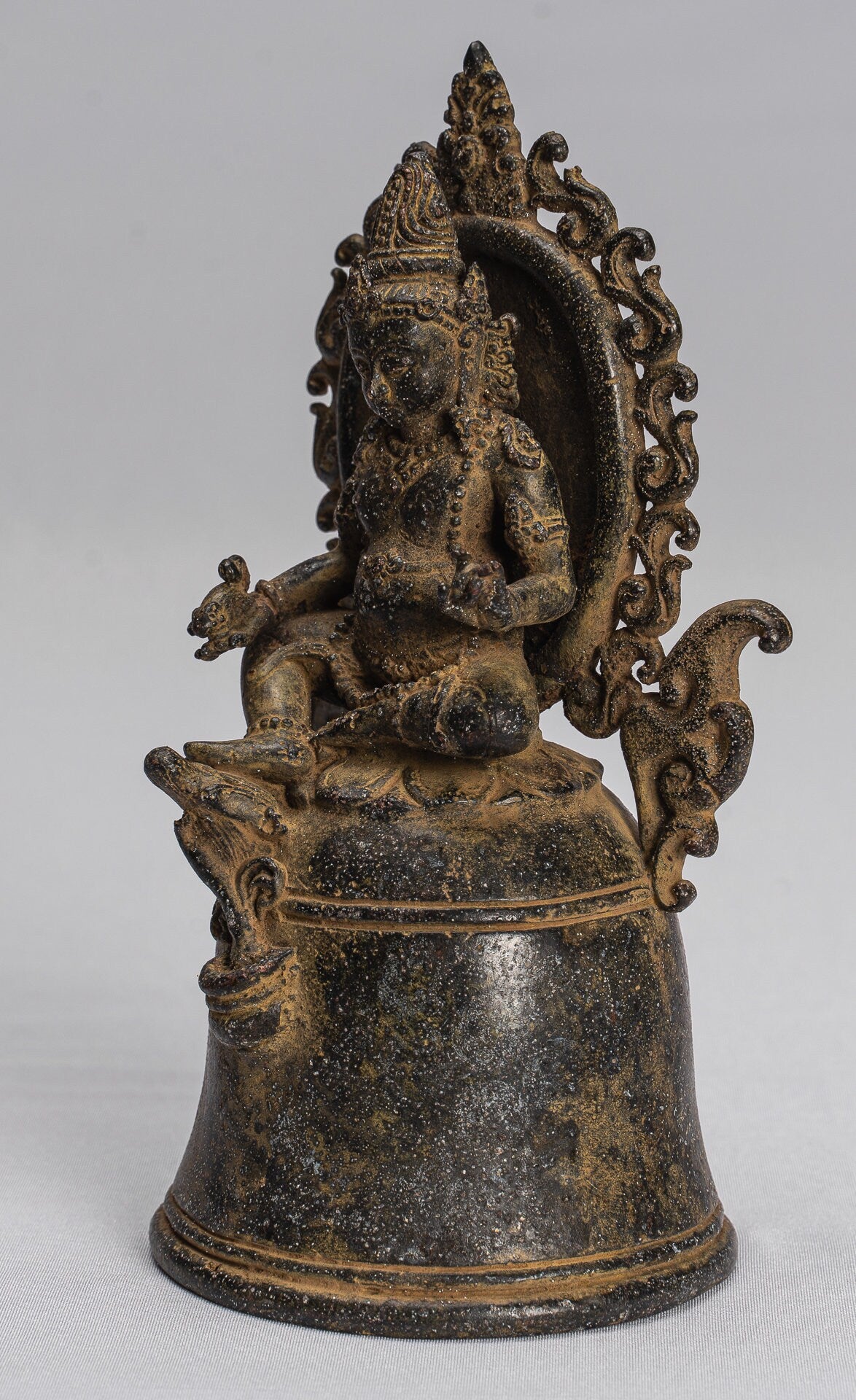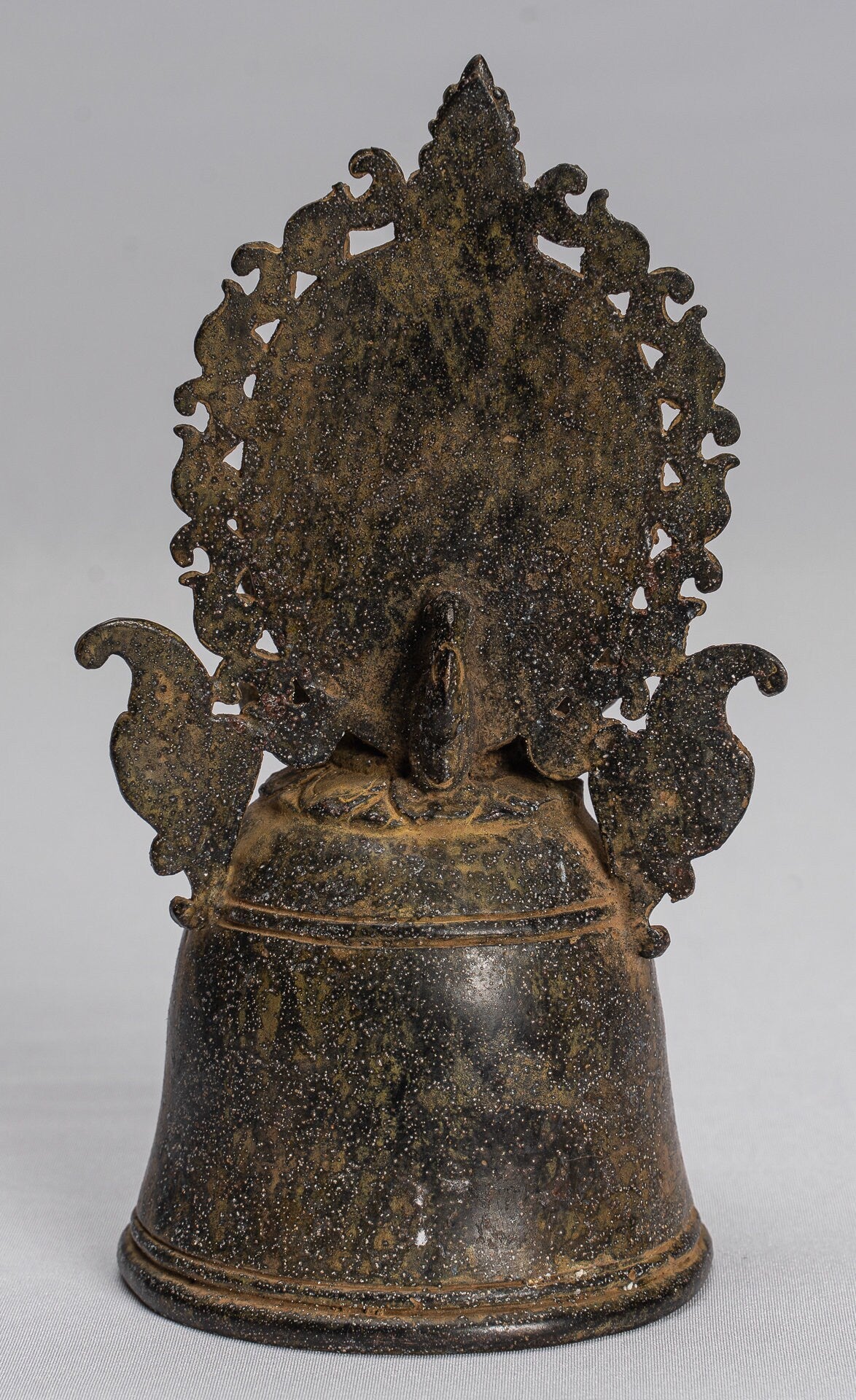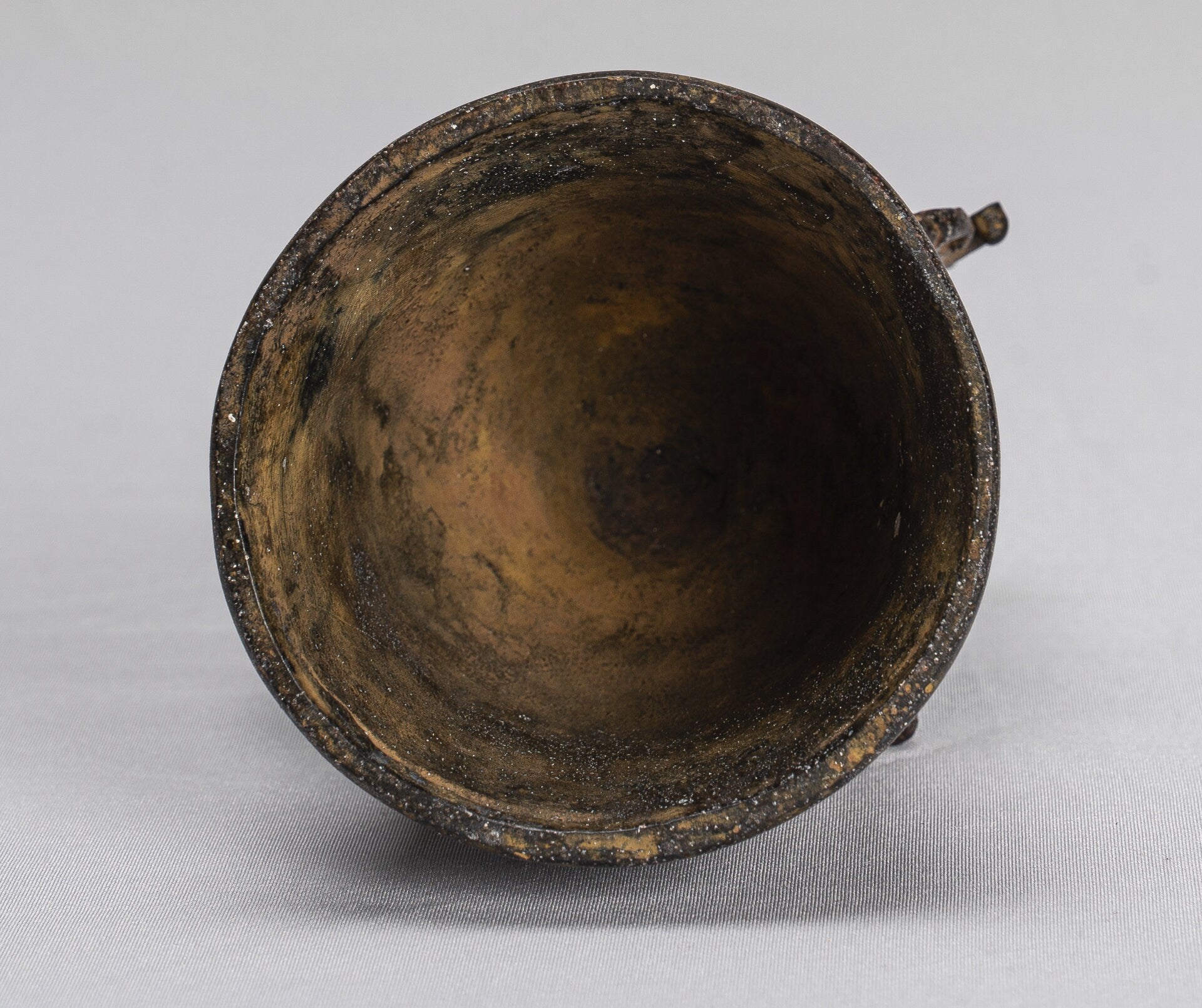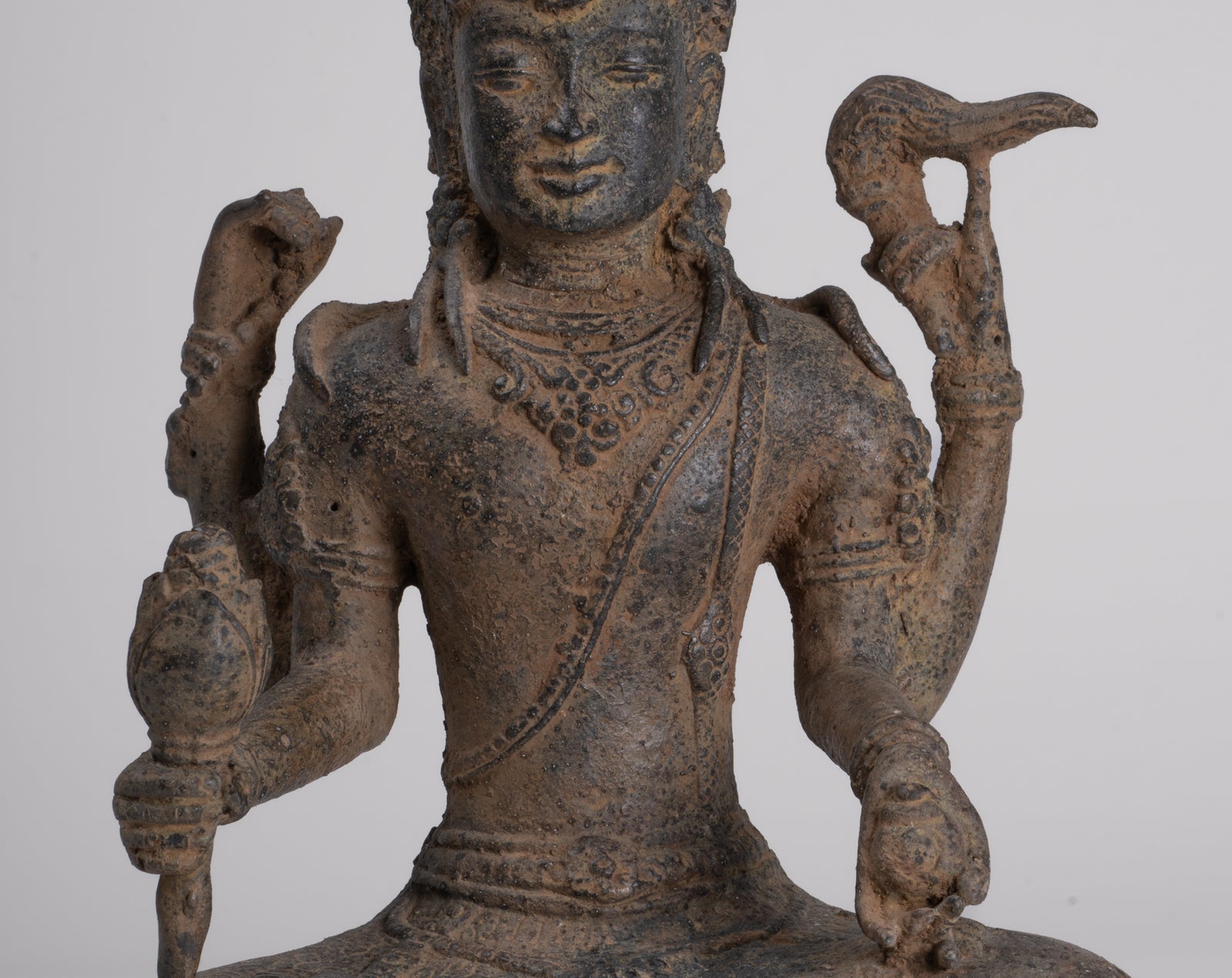-
Antique Java Majapahit Style Seated Yellow Jambhala Statue God of Wealth - 16cm/6"
Measures (Height) 16cm/6"
An antique Majapahit style Jambhala (also known as Dzambhala, Dzambala, Zambala or Jambala) from Java, Indonesia. Jambhala is the God of Wealth and appropriately a member of the Jewel Family. He is sometimes equated with the Hindu deity Kubera. Jambhala is also believed to be an emanation of Avalokitesvara, the Bodhisattva of Compassion.
Jambhala is a Bodhisattva of material and spiritual wealth as well as many other things, especially of granting financial stability. Here we see the Yellow Jambhala. He is considered the most popular and powerful of the Wealth Gods. An emanation of Buddha Ratnasambhava. He can move poverty within the six realms, increasing virtues, life span and wisdom. He is also said to be an emanation of Vaisravana, one of the "Four Great World-protecting Heavenly Kings". He is the guardian of light in Buddhism, a great charitable deity who grants fortune and protection. Lord Vaisravana lives in the northern region under the Four Heavens, at the northern crystal palace on the fourth level of Mount Sumeru.
His servants are either yaksas or bhaisajya-yaksas. According to the commentary on Lotus Sutra, this heavenly king is extremely knowledgeable as his perpetual protection of the Buddhas has enabled him to receive many teachings. Here Yellow Jambhala sits in the vajra position with his right leg is panhandle, resting on a lotus flower and his left leg is kinked. He has one face and two arms.
His right hand is held in the dharmachakra mudra. In sanskrit dharmachakra means the 'Wheel of Dharma'. This mudra symbolises one of the most important moments in the life of Buddha, the occasion when he preached to his companions the first sermon after his Enlightenment in the Deer Park at Sarnath. It therefore denotes the setting into motion of the Wheel of the teaching of the Dharma. In this mudra the thumb and index finger touch at their tips to form a circle. This circle represents the Wheel of Dharma, or in metaphysical terms, the union of method and wisdom. This symbolises generosity.
His left hand holds gems wrapped in a lotus leaf. He is seated on a round lotus flower base, symbol of fertility.
Scholarly Reference:
New York Metropolitan Museum Collection - Accession Number: 1987.142.175
Christie's Auction House - Sale 16002 (September 2017) - The Collection of Paul F. Walter
This traditional in appearance piece is sure to bring serenity to your home, office or sacred place.
SATISFACTION GUARANTEE - We have been offering SE Asian Art for many years and are proud of the reputation we have developed for fair and honest listings. However, if for any reason, whatsoever, you are unhappy with your purchase please just let us know and we will provide a full refund. We want you to be 100% happy with your purchase.
-
The majority of orders will be shipped with DHL. This is a secure, express and fully tracked service.
Items less than 2Kg we typically ship using Royal Mail.
Once we receive your order we try to ship all orders the same or next working day.
Large and/or fragile pieces requiring palletising, specialist crating and/or extra packaging may take a little longer. Palletised shipments will be delivered curbside.
All orders over 35 GBP will be shipped free of charge.

-
We genuinely hope that all purchases delight.
However, if they do not, regardless of reason, we will refund all orders upon receipt of the unwanted item. Just notify us within 14 days of receiving your order that you wish to make a return and send the piece back to us with 30 days of delivery.
The Golden Age of Majapahit Art represents a period of extraordinary creativity and cultural synthesis, producing works of lasting beauty and profound spiritual significance.
From the majestic temples of Trowulan to the intricate terracotta sculptures, Majapahit art offers a glimpse into the rich cultural tapestry of one of Southeast Asia’s greatest empires.


